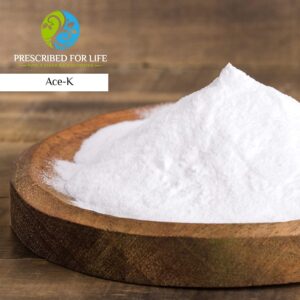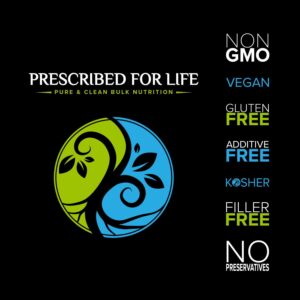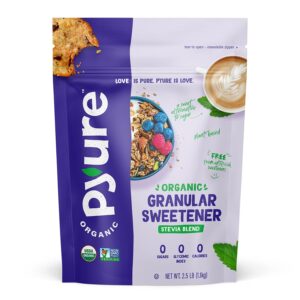The Truth about Aspartame Sweeteners and Consumer Safety 2025
The Truth about Aspartame, Aspartame, carcinogen, WHO, IARC, artificial sweeteners, safety, consumers, food makers
 Introduction
Introduction
1. Welcome to an in-depth exploration of the latest happenings and situations surrounding aspartame sweeteners. In this comprehensive article, we will address the concerns of both consumers and food manufacturers regarding the safety of these artificial sweeteners. As a highly proficient SEO and copywriter, our goal is to provide you with content so remarkable that it outranks other websites. So, let’s delve into the truth about aspartame sweeteners and consumer safety.
2. Understanding Aspartame: What You Need to Know

Aspartame is an artificial sweetener widely used as a sugar substitute in various food and beverage products. Its popularity stems from the fact that it offers intense sweetness with minimal calories, making it an attractive option for individuals aiming to reduce their sugar intake. However, recent years have witnessed mounting concerns about the safety of aspartame sweeteners, prompting extensive research into their potential health risks.
3. Addressing the Concerns: Potential Health Risks of Aspartame Sweeteners
Numerous studies have explored the potential associations between aspartame consumption and various health issues. While the scientific evidence remains inconclusive, certain health risks have been suggested based on observational studies and anecdotal reports.

- Cancer
Some studies have indicated a potential link between aspartame consumption and specific types of cancer, including leukaemia, lymphoma, and brain tumours. However, it is essential to note that the evidence is limited, and further research is required to establish a definitive causal relationship.
- Neurological Disorders
Aspartame has also been implicated in the development or exacerbation of neurological disorders such as headaches, migraines, dizziness, seizures, and mood disorders. It is important to recognize that individual susceptibility to these effects may vary.
- Metabolic Disturbances
Metabolic disturbances, including changes in blood sugar levels, insulin resistance, and weight gain, have been associated with aspartame consumption. These effects are particularly concerning for individuals with diabetes or those striving to manage their weight effectively.
- Allergic Reactions
Some individuals may experience allergic reactions or sensitivity to aspartame, leading to symptoms such as hives, itching, swelling, or difficulty breathing. Those with known allergies to aspartame or its components should avoid its consumption.
- Gastrointestinal Issues
Aspartame has been linked to gastrointestinal problems in some individuals, including bloating, diarrhoea, abdominal pain, and irritable bowel syndrome (IBS). These effects can vary depending on an individual’s sensitivity and overall health.
While regulatory authorities such as the European Food Safety Authority (EFSA) and the US Food and Drug Administration (FDA) have determined that aspartame is safe within recommended daily intake limits, individual circumstances may warrant consultation with healthcare professionals for personalized advice.
4. The World Health Organization’s Cancer Agency’s Warning

Recognizing the need for further investigation into the safety of aspartame sweeteners, the World Health Organization’s cancer agency, the International Agency for Research on Cancer (IARC), has issued a warning. In 2019, the IARC stated that there is limited evidence suggesting that aspartame could potentially be a carcinogen. However, they also noted that the overall evidence remains inconclusive, and more research is necessary to establish a definitive link.
It’s important to keep in mind that regulatory bodies like the Food Standards Agency (FSA) in the UK and the European Food Safety Authority (EFSA) have evaluated the scientific evidence and currently deem aspartame safe for consumption within recommended limits. These authorities rely on comprehensive reviews of the available research and conduct rigorous risk assessments before establishing safety guidelines.
5. Empowering Consumer Choices: Seeking Alternatives to Aspartame Sweeteners
Due to the concerns surrounding aspartame sweeteners, many consumers are actively seeking alternatives. Fortunately, there are several natural and artificial sweeteners available on the market that can be used as substitutes.
Some popular natural sweeteners include stevia, monk fruit extract, and erythritol. These alternatives provide sweetness without adding significant calories and are considered safe for most individuals. However, it’s always advisable to check product labels and consult healthcare professionals if you have specific dietary needs or health concerns.
Additionally, there are other artificial sweeteners, such as sucralose and saccharin, which have undergone extensive safety testing and are approved for use in various food and beverage products. These sweeteners offer alternatives to aspartame while still providing a sweet taste with minimal or no calories.
6. Making Informed Decisions: Reading Labels and Identifying Aspartame
To make informed choices about the foods and beverages we consume, it’s crucial to read product labels carefully. Aspartame is commonly listed as an ingredient in various processed foods, beverages, chewing gums, and tabletop sweeteners. Look for terms like “aspartame,” “E951” (the European food additive number for aspartame), or brand names such as NutraSweet and Equal.
By being aware of the presence of aspartame in products, consumers can make conscious decisions based on their personal preferences and health considerations. Remember, moderation is key, and a varied and balanced diet is essential for overall well-being.
7. Collaborative Efforts: Food Makers Responding to Consumer Concerns
In response to growing consumer concerns, many food and beverage manufacturers have started offering alternative product options. Some have removed aspartame from their formulations and replaced it with other sweeteners, catering to the increasing demand for healthier and more natural alternatives.
These efforts demonstrate the industry’s responsiveness to consumer preferences and their commitment to providing a wide range of choices that meet different dietary needs and taste preferences.
8.Alternatives to aspartame
There are a number of alternatives to aspartame, including:
- https://amzn.to/46uW7cQAcesulfame potassium (Ace-K): Ace-K is a white, odourless powder that is about 200 times sweeter than sugar. It is often used in combination with other sweeteners, such as aspartame, to improve the taste of foods and beverages. Ace-K is generally considered safe for most people, but it may cause side effects in some people, such as headaches and stomach upset.

Acesulfame potassium (Ace-K): https://amzn.to/46uW7cQ
- Acesulfame potassium (Ace-K) sweetener
- Neotame: Neotame is a synthetic sweetener that is about 7,000 times sweeter than sugar. It is often used in foods and beverages that require a strong sweetness, such as candy and baked goods. Neotame is generally considered safe for most people, but it may cause side effects in some people, such as headaches and nausea.
- Neotame sweetener
- Saccharin: Saccharin is a white, odourless powder that is about 300 times sweeter than sugar. It was the first artificial sweetener to be approved for use in food, and it is still widely used today. Saccharin is generally considered safe for most people, but it may cause side effects in some people, such as bladder cancer.
- Saccharin sweetener
- Sucralose: Sucralose is a synthetic sweetener that is about 600 times sweeter than sugar. It is made from sugar, but it is processed in a way that makes it calorie-free. Sucralose is generally considered safe for most people, and it is one of the most popular artificial sweeteners in the world.
- Stevia: Stevia is a natural sweetener that is extracted from the leaves of the stevia plant. It is about 200-300 times sweeter than sugar, and it has no calories. Stevia is generally considered safe https://amzn.to/435MsXhfor most people, and it is becoming increasingly popular as a natural alternative to artificial sweeteners .https://amzn.to/435MsXh


Stevia:
It is important to note that the safety of artificial sweeteners is still being debated. Some people believe that they are safe, while others believe that they may have negative health effects. If you are concerned about the safety of artificial sweeteners, you should talk to your doctor.
9. Here are some additional tips for choosing an artificial sweetener:
- Consider your health concerns: If you have any health concerns, such as diabetes or heart disease, you should talk to your doctor about which artificial sweetener is right for you.
- Taste: Different artificial sweeteners have different tastes, so it is important to try a few different ones to find one that you like.
- Price: Artificial sweeteners can vary in price, so you should compare prices before you buy.
- Availability: Not all artificial sweeteners are available in all stores, so you may need to shop around to find the one you want.
By following these tips, you can choose an artificial sweetener that is safe and that you enjoy.
10. FAQs (Frequently Asked Questions) about Aspartame Sweeteners
Q 1. Is aspartame safe for consumption?
A. Aspartame is considered safe for consumption within the recommended daily intake limits set by regulatory authorities. However, individual circumstances may vary, and consulting healthcare professionals is advisable, especially for individuals with specific health conditions or concerns.
Q 2.Does aspartame cause cancer?
The evidence linking aspartame to cancer is limited and inconclusive. Regulatory agencies have evaluated the available research and currently consider aspartame safe for consumption within recommended limits.
Q3. What are some alternatives to aspartame sweeteners?
A. There are several alternatives to aspartame sweeteners, including natural sweeteners like stevia, monk fruit extract, and erythritol, as well as other artificial sweeteners such as sucralose and saccharin.
Q 4. Are there any health concerns associated with aspartame?
A. Aspartame has been the subject of extensive scientific research, and regulatory authorities have concluded that it is safe for consumption within recommended limits. However, some individuals may have specific sensitivities or medical conditions that warrant caution. Consulting healthcare professionals can provide personalized guidance.
Q 5. Can aspartame be safely consumed during pregnancy?
A. Regulatory agencies consider aspartame safe for consumption during pregnancy within the recommended limits. However, it’s advisable to consult with healthcare professionals for individualized advice, taking into account personal circumstances and any existing health conditions.
Q 6. Are there any side effects of consuming aspartame?
A. For most individuals, consuming aspartame within the recommended limits does not cause significant side effects. However, some people may experience mild symptoms like headaches or digestive issues. If you have concerns or experience adverse effects, consult healthcare professionals.
Q 7. Can aspartame be used for weight management?
A. Aspartame is a low-calorie sweetener and can be used as part of a balanced diet for weight management. It provides sweetness without adding significant calories. However, overall calorie intake and a healthy lifestyle are key factors in weight management.
Conclusion
Aspartame sweeteners have been the subject of ongoing debate and research regarding their safety and potential health effects. While concerns have been raised, regulatory authorities currently deem aspartame safe for consumption within recommended limits.
Consumers seeking alternatives to aspartame have various options, including natural sweeteners like stevia and monk fruit extract, as well as other artificial sweeteners like sucralose and saccharin. By reading product labels and being informed about the presence of aspartame, individuals can make choices that align with their dietary needs and preferences.
It’s essential to remember that maintaining a varied and balanced diet, coupled with moderation in the consumption of sweeteners, is crucial for overall well-being. As new research emerges, regulatory bodies and food manufacturers will continue to evaluate and respond to consumer concerns, ensuring a wide range of choices for individuals seeking healthier options.
- Disclaimer: The contents of this article are intended to raise awareness about common health issues and should not be viewed as sound medical advice for your specific condition. You should always consult with a licensed medical practitioner before following any suggestions outlined in this article or adopting any treatment protocol based on the contents of this article.
Understanding Anger : A Comprehensive Guide in 2025
